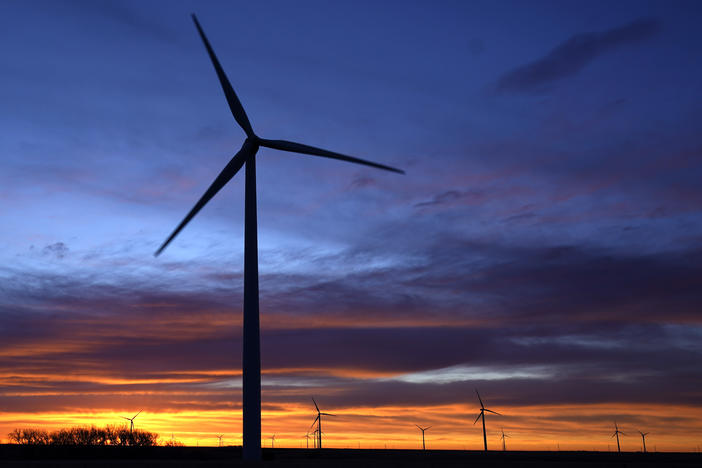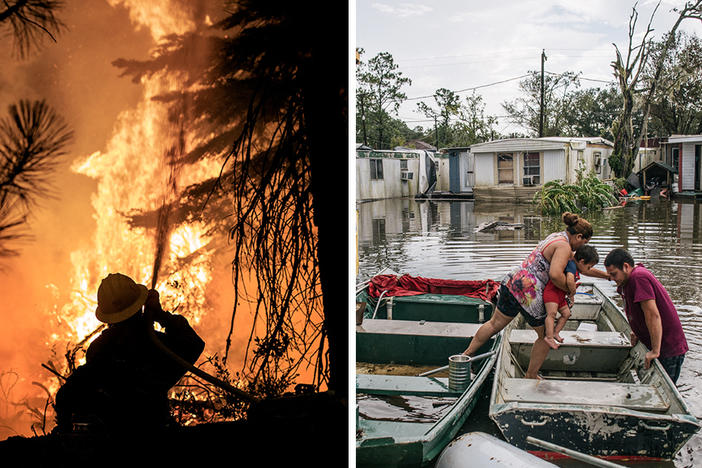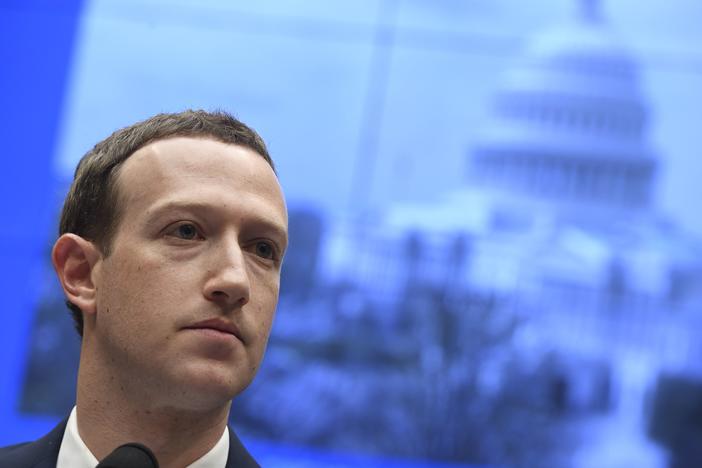Section Branding
Header Content
'Green New Deal' Leaders See Biden Climate Plans As A Victory, Kind Of
Primary Content
For Rep. Alexandria Ocasio-Cortez and progressive climate activists, the Biden infrastructure plan shows the influence of the Green New Deal. But they think it's nowhere near big enough.
Transcript
SCOTT SIMON, HOST:
When President Biden unveiled his new infrastructure plan this week, he framed it in grand terms.
(SOUNDBITE OF ARCHIVED RECORDING)
PRESIDENT JOE BIDEN: The American Jobs Plan will lead to a transformational progress in our effort to tackle climate change with American jobs and American ingenuity.
SIMON: The broad scope of that climate-focused proposal reminds some progressives of a big plan they've championed in recent years, what they called the Green New Deal. Here's NPR's Danielle Kurtzleben.
DANIELLE KURTZLEBEN, BYLINE: Alexandria Ocasio-Cortez had a blunt initial response to the prospect of an infrastructure package weighing in at around $2 trillion.
(SOUNDBITE OF ARCHIVED NPR BROADCAST)
ALEXANDRIA OCASIO-CORTEZ: The size of it is disappointing. It's not enough.
KURTZLEBEN: The New York representative spoke to NPR this week hours before Biden released final details of his plan. Altogether, Biden is expected to propose less than half the spending that progressives like Ocasio-Cortez have called for. But then, his plan does include priorities she was excited to see - strengthening unions, for example, as well as a focus on communities hit hardest by climate change. It's in those types of policies that she sees a victory for the Green New Deal she co-sponsored.
(SOUNDBITE OF ARCHIVED NPR BROADCAST)
OCASIO-CORTEZ: As much as people - you know, I think some parts of the party try to avoid saying Green New Deal. Ultimately, the framework, I think, has been adopted.
KURTZLEBEN: Ocasio-Cortez's comments mirror the tension in how progressives view the White House's climate change agenda - full of signs that the president is implementing the climate movement's broad ideas, but not always on the scale that they want. Varshini Prakash is executive director of the Sunrise Movement, one of the main groups that pushed for the Green New Deal. She applauded a New Deal-inspired plan for green jobs that Biden included in a January executive order.
VARSHINI PRAKASH: I think the Civilian Climate Corps, which is a measure to create jobs doing the work of averting climate catastrophe and putting people back to work, was something that we didn't anticipate being a priority for the administration right away.
KURTZLEBEN: However, she thinks the $10 billion Biden calls for spending on it is far too little.
PRAKASH: That fight over the scale and scope of what needs to happen in terms of employment, in terms of the scale of investment and the urgency is going to be a terrain of struggle as this plan gets debated and discussed in Congress.
KURTZLEBEN: The Green New Deal isn't a hard-and-fast policy proposal. Instead, it's a broad, decidedly liberal call to overhaul the economy while also benefiting the environment. Joe Biden did not embrace it on the campaign trail, but he did call it a, quote, "crucial framework for meeting the climate challenges we face." And Ocasio-Cortez thinks that that plan helped open the door to Democrats embracing bigger government investments in fighting climate change.
OCASIO-CORTEZ: Pre-Green New Deal rollout, a lot of the conversation around climate policy was very scientific and also very capitalist. It was very, like, let's nudge the market, tax incentives, things like that, which is not to say all of those things are bad, but the idea that the market is going to fix a problem that is created by the market, you know, in my view, it's not correct.
KURTZLEBEN: It's also true that forces well beyond climate activism and the Green New Deal may have given Biden more room to act, says Paul Bledsoe, a former climate adviser to President Bill Clinton.
PAUL BLEDSOE: I think that Americans during the pandemic have come to appreciate the role of government in emergencies and are increasingly viewing climate change as our next biggest emergency.
KURTZLEBEN: But that doesn't mean passing Biden's plan will be easy, and Ocasio-Cortez knows it.
OCASIO-CORTEZ: There's a very politically hairy task of trying to figure out how we're going to legislate with a 50-50 Senate. And that Senate party, it's not progressive.
KURTZLEBEN: Those slim margins on Capitol Hill mean bringing moderates along, which may mean compromising on a bill that some progressives already think is too small. Danielle Kurtzleben, NPR News.
(SOUNDBITE OF MUSIC) Transcript provided by NPR, Copyright NPR.
Bottom Content



